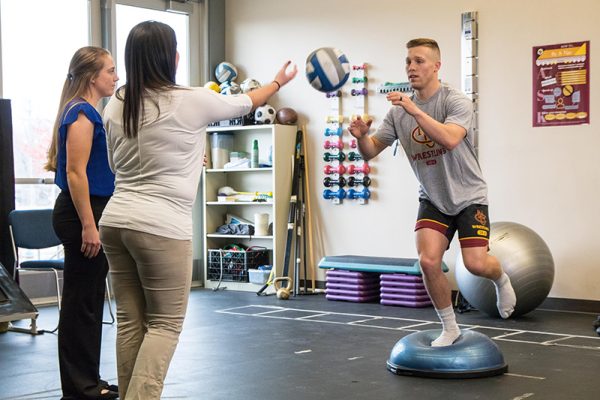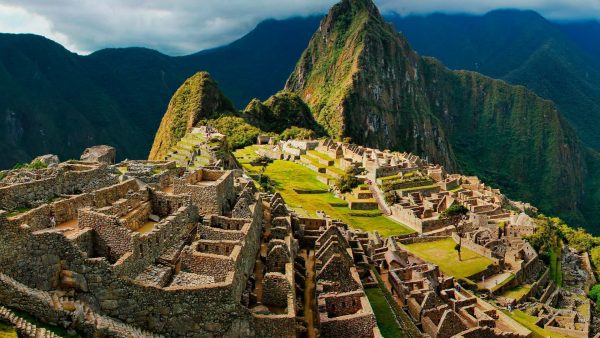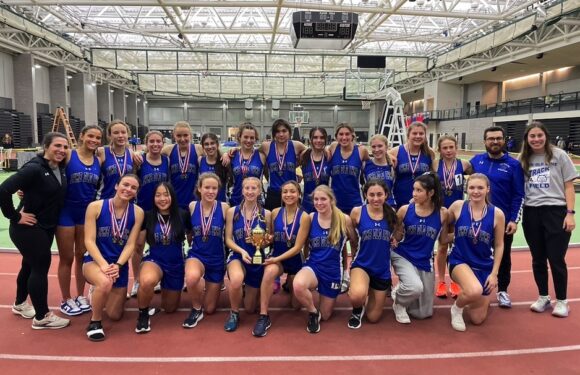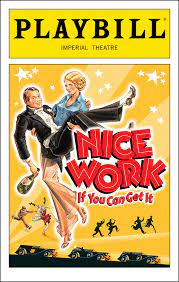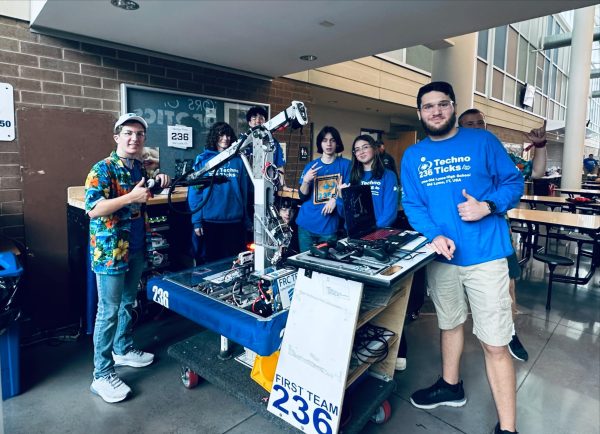Veterans Day: LOLHS Celebrates a Meaningful Holiday
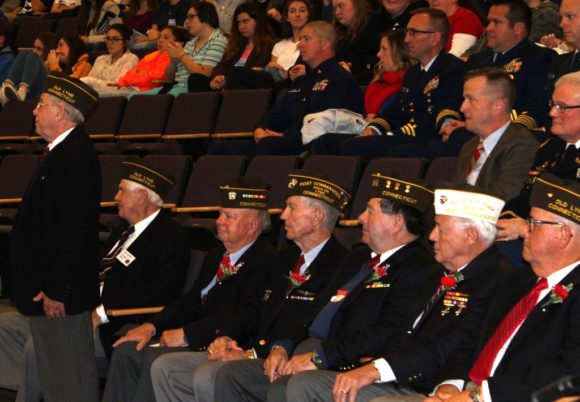
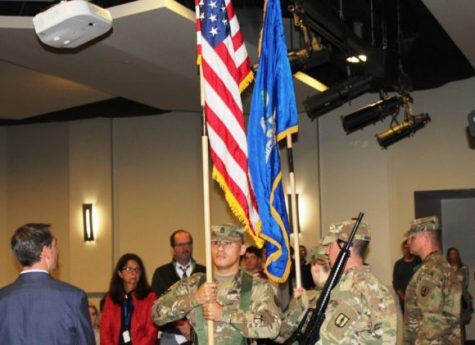
Veterans Day: defined as “a public holiday held on the anniversary of the end of World War I to honor US veterans and victims of all wars.” Replacing Armistice Day in 1954, Veterans Day honors veterans who served in all wars, not only those who fought during WWI. However, Veterans Day maintains the practices of the original Armistice Day: parades, ceremonies, and a pause in activities at 11am to appreciate the veterans’ service. Veterans Day holds great significance for Americans. The day honors all those who fought to allow us as Americans to live with all the freedoms and rights we currently hold.
Every year, Lyme-Old Lyme High School hosts an assembly on Veterans Day to honor veterans in the community. It is an exciting day that involves much preparation: the band and chorus students practice The Star Spangled Banner, America the Beautiful, and the Armed Forces Salute to perform at the assembly, administrators create a video to show, and a few students are chosen to welcome the veterans as well as make gifts and cards expressing their gratitude. As result of the hard work that goes into organizing the assembly, it is always a success: students and teachers eagerly anticipate hearing veterans’ stories and learning more about the holiday; the veterans in attendance express their appreciation for being honored. This year, it was no different.
During my four years at Lyme-Old Lyme High School, each year I have been astounded by the scene of the assembly: every student and teacher is dressed in patriotic colors, excited to hear the veterans’ speeches and the band and chorus perform together. What really amazes me is the wave of emotion that rushes through the auditorium: at some point, whether it be during the music, the veteran’s speech recounting his time serving, or the video about the Old Lyme vet that served in WWII and was a prisoner of war, the majority of the audience will be crying or on the verge of tears. This shows how great an impact the holiday has on the LOLHS community.
Another tradition involves the VFW Essay Contest. This year, students wrote an essay on the topic “American History: Our Hope for the Future.” This year’s winner, junior Alexander Williams, received $150, a medal, and a laminated certificate. His essay eloquently explored the principles of democracy, touching upon how the past affects the present and future.
Happy Veterans Day to all, and God Bless America!
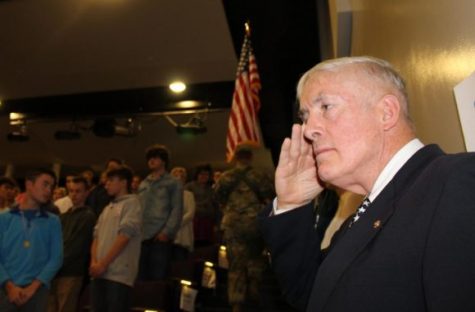
Alex’s Essay:
“The moment the past is forgotten would be the moment we disavow our humanity. The history of humanity is one of a great protracted struggle to preserve that which nature bestowed upon us in the face of our own cunning and our own will to dominate. In many ways, this monumental timeline is quintessential of our own human identity. It is our sentience, unique among all forms of life in this world, that permits us to grow and learn from the failures of our forebears while heeding their triumphs. Thus if we were to become an immortal race we would lose our sentience and so our humanity, our failures to prolong and our spirits to fracture. Our mortality is what breathes into us our resolve and clarity, our principles and ideals, that which supplies nobility to an ignoble race. The great work, advanced to varying extents by all the different peoples of the world, has been called great for the reason that it seeks to dislodge the unjust domination of one individual or collective over another. It it this that we call freedom, that millennium after millennium grew until it swept into existence the oldest of the world’s living democracies, the United States of America. This history of development had been brought about by nothing less than mortals, following their faith, striving for a better world.
It is this striving that must be remembered, for it constructs a past whose failures are clear and whose successes are remembered. And it is precisely the work of generations to replenish and continue the high and noble work, year after year, century after century, that remains indeed the last and most effective weapon which nature offers us. It is that which builds atop the past a future, and guarantees the inalienable rights to be protected from assaults on their purity in the form of corruption and distortion. These rights are testament to the freedom that is yearned. It is an immense task and thus does history not belong to the cowards. It belongs to the giants, no matter from where in humanity they emerge.
American history is not a story of straightforward righteousness. Humans are creatures of ignoble nature. The great book of our forebears contains pages written in gold and pages written in blood. But they remain pages of our past all the same, and to only retain our successes, to only allow to be seen monuments our era approves of, would ignore history’s failures altogether and eat away at the natural rights. It is these natural rights which must forevermore remain unalterably in sight for they enshrine what America struggles for. It is these rights which even our own institutions protect, which patriots of democracy are willing to leave home to protect, to fight to protect, to die to protect. If our history does not reflect this then what history would? The more freedom is believed in the less a mortal cares about his or her mortality. If we never did believe in such a thing as freedom or were willing to disregard our mortality in pursuit of it, then would the soldiers at Bunker Hill have remained in their positions even as the superior might of the enemy is flung them over? Would the slaves of Georgia have traversed swamp and bog to escape their captors, following the North Star? Would the girls have still marched on at the turn of the century under the threat of reprisal in pursuit of those rights to suffrage and property still owed to them? Would so many young boys have left their schools to fight for their country in World War II? As Ronald Reagan once declared, the martyrs of history were not fools. But many of these martyrs are nameless, with no great title belonging to them, yet they are giants no less. They understood the meaning of sacrifice and came to the service of history and country, to fight for what they believed in.
Would these services be forgotten? What would become of any people then? Suddenly they would find themselves alone to follow the destiny of mankind. American history reflects the unique past of its people, triumphs that have steered the world little by little into a planet where a greater percentage of mankind lives in democracy than in any other form of government. What drives this movement? What sustains it? The past contains the answers, and also provides a glimpse at the great weapon which opponents of freedom do not understand nor can possess. It is the struggle of the past, and the accessibility of history, that resolves us to become martyrs. Our willingness to sacrifice is something that oppression cannot grasp, however much they would like to. Natural rights and the desire, the need, to preserve them is a driving force for mankind. Life, liberty, and the pursuit of happiness remain lighthouses amidst the turbulence of mankind and are reflected in both our successes and our failures; they must be remembered if we want to continue the noble work of our forebears.
The future belongs to the bold; it belongs to us. Against the magnitude of our history there is a staggering pressure upon us to make a future worthy of our past. It is inevitable that in the pursuit of natural rights, mistakes will be made. But Americans, and any freedom-aspiring people, are not alone in this struggle. American history provides the teacher for the students that will later come to engage in the world and write their own pages of history, each page a lifetime for us but a mere flicker in the lifetime of the world. In our mortality, we must have faith to grasp something everlasting. Natural rights underpinning our humanity must never be forgotten, their relevance to the past never undermined nor belittled. In the great work of preserving them, history is made. It is what comprises the past. It is thus what provides hope as we make our way into the future.”

